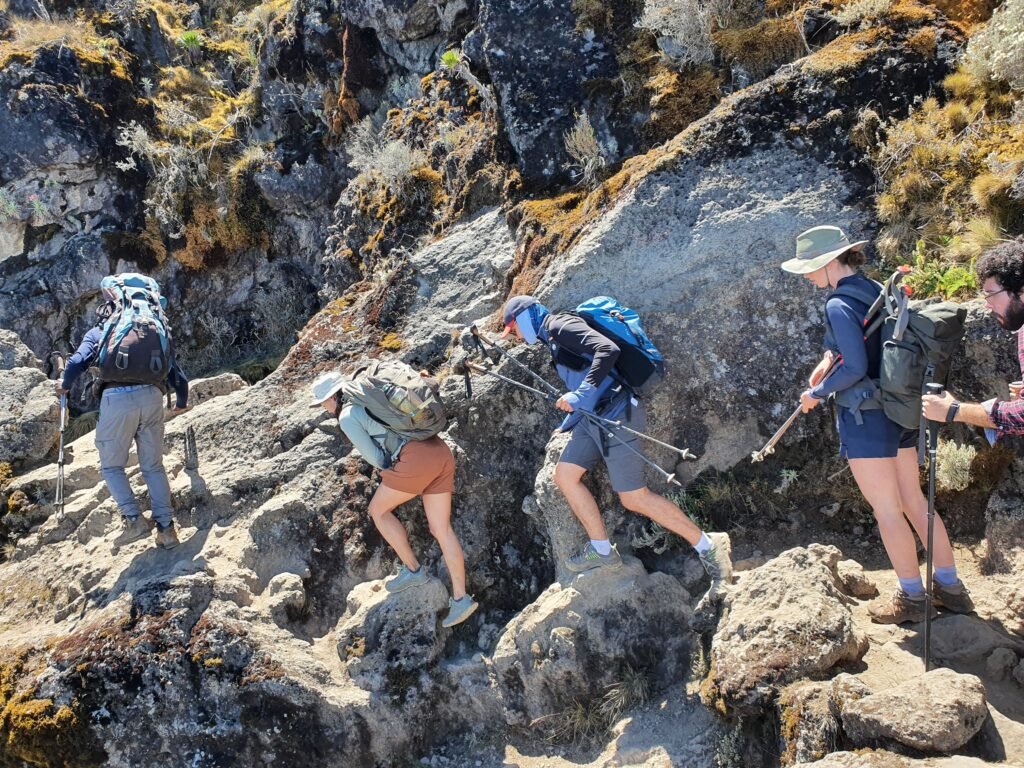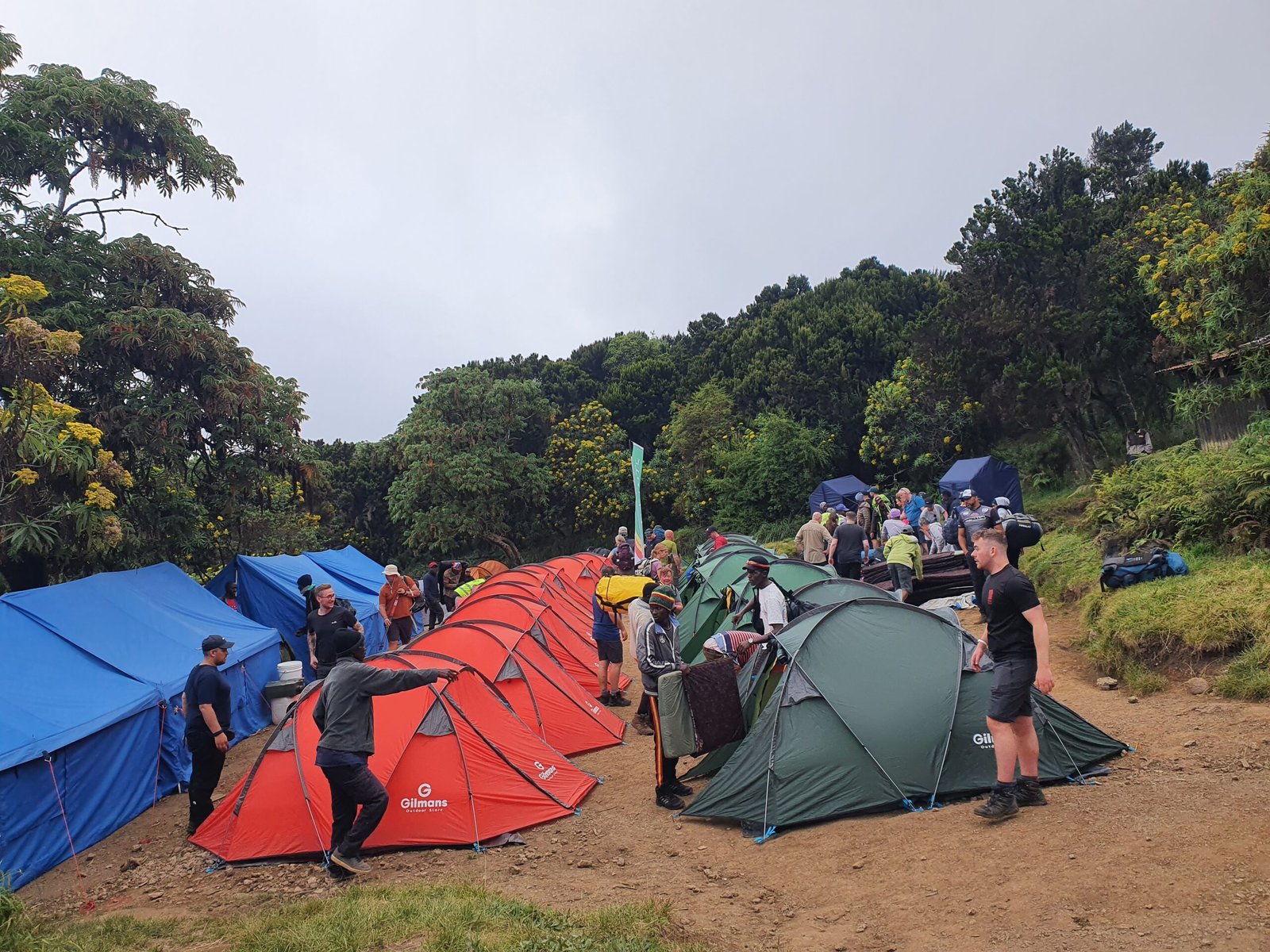Ultimate Guide to Kilimanjaro’s Best Climb: 7-Day Umbwe Route 2025-2026
Ultimate Guide to Kilimanjaro’s Best Climb: 7-Day Umbwe Route 2025-2026
Introduction to the Umbwe Route
The Umbwe Route is celebrated for its steep, direct approach to the summit of Mount Kilimanjaro, offering an adventurous challenge for seasoned hikers. Though it is one of the most physically demanding routes, the 7-day option provides extra time for acclimatization, making it an excellent choice for those seeking both adventure and a better chance of summit success. With fewer crowds and breathtaking landscapes, this guide will walk you through everything you need to know to conquer the Umbwe Route between 2025 and 2026.

Why Choose the 7-Day Umbwe Route?
Extra Acclimatization Time: The 7-day itinerary offers more time to acclimatize to the altitude, increasing your chances of reaching Uhuru Peak safely.
Thrilling Adventure: Known as the most challenging Kilimanjaro route due to its steepness, it offers an adrenaline-pumping experience for climbers seeking a rugged and wild ascent.
Stunning and Varied Landscapes: As you move through different climate zones, you’ll experience everything from dense rainforest to alpine desert, with dramatic views of valleys, ridges, and glaciers.
Low Traffic: The Umbwe Route is less crowded than other Kilimanjaro routes, giving you a more intimate experience of the mountain.
Ultimate Guide to Kilimanjaro’s Best Climb: 7-Day Umbwe Route 2025-2026 : Itinerary
Day 1: Umbwe Gate to Umbwe Cave Camp
Elevation: 1,800m (5,905ft) to 2,850m (9,350ft)
Distance: 11 km (6.8 miles)
Hiking Time: 5-7 hours
Habitat: Rainforest
The journey begins at the Umbwe Gate, where you hike through a dense, lush rainforest. The trail is steep and rugged, setting the tone for the challenging days ahead. After several hours of uphill trekking, you arrive at Umbwe Cave Camp, nestled in the forest, for your first night.
Day 2: Umbwe Cave Camp to Barranco Camp
Elevation: 2,850m (9,350ft) to 3,900m (12,800ft)
Distance: 6 km (3.7 miles)
Hiking Time: 4-5 hours
Habitat: Moorland
On Day 2, you transition from rainforest to moorland, with the vegetation becoming sparser. As you approach Barranco Camp, you’ll be greeted with incredible views of the towering Barranco Wall and the impressive southern glaciers of Kibo. This campsite offers one of the most spectacular panoramas on the mountain.
Day 3: Barranco Camp to Karanga Camp (via Barranco Wall)
Elevation: 3,900m (12,800ft) to 4,035m (13,235ft)
Distance: 5 km (3.1 miles)
Hiking Time: 4-5 hours
Habitat: Alpine Desert
After a hearty breakfast, you’ll tackle the famous Barranco Wall—a challenging but manageable scramble up a steep rock face. The reward is breathtaking views from the top. Afterward, you’ll continue to Karanga Camp, crossing valleys and ridges that offer glimpses of the mountain peak ahead.
Day 4: Karanga Camp to Barafu Camp
Elevation: 4,035m (13,235ft) to 4,640m (15,223ft)
Distance: 4 km (2.5 miles)
Hiking Time: 4-5 hours
Habitat: Alpine Desert
This day’s climb brings you into the alpine desert zone. Though the distance is shorter, the high altitude will make the trek more challenging. You’ll reach Barafu Camp, the base camp for your summit push, by mid-afternoon. After an early dinner, you’ll rest before your midnight summit attempt.
Day 5: Barafu Camp to Uhuru Peak to Mweka Camp
Elevation: 4,640m (15,223ft) to 5,895m (19,341ft) (Summit), then down to 3,100m (10,170ft)
Distance: 17 km (10.6 miles)
Hiking Time: 10-14 hours (total for ascent and descent)
Habitat: Arctic to Rainforest
Your summit day begins around midnight with a grueling ascent toward the summit. The trail to Stella Point is steep and rocky. From there, it’s a relatively easy walk to Uhuru Peak, the highest point in Africa. After celebrating your achievement, you’ll descend to Mweka Camp, passing through alpine desert back into the lush rainforest.
Day 6: Mweka Camp to Mweka Gate
Elevation: 3,100m (10,170ft) to 1,640m (5,380ft)
Distance: 10 km (6.2 miles)
Hiking Time: 3-4 hours
Habitat: Rainforest
The final descent takes you through the rainforest down to Mweka Gate. After checking out, you’ll receive your Kilimanjaro climbing certificate and say goodbye to your team of guides and porters. From here, you will be transferred back to your hotel in Moshi or Arusha for a well-deserved rest.
What to Expect on the Umbwe Route
Challenging Terrain: The Umbwe Route is steep and physically demanding, so proper training is essential. It’s suited for experienced hikers in good physical condition.
Acclimatization: The 7-day itinerary provides more time to acclimatize, increasing your chances of summit success. Altitude sickness can still be an issue, so it’s important to pace yourself and stay hydrated.
Diverse Climate Zones: The route takes you through a variety of ecosystems, from dense rainforests to the arctic zone near the summit, so be prepared for rapidly changing weather conditions.
Smaller Groups: This route is less crowded than the more popular routes, ensuring a more intimate and personal climbing experience.
Frequently Asked Questions
Is the Umbwe Route suitable for beginners?
The Umbwe Route is one of the most challenging routes on Kilimanjaro due to its steep ascents and rugged terrain. It is recommended for experienced hikers with previous altitude trekking experience. Beginners are encouraged to choose a longer route with a gentler ascent, such as the Machame or Lemosho routes.
What is the success rate for the Umbwe Route?
The success rate for the 7-day Umbwe Route is higher than the 5-day option due to the additional acclimatization time. With proper preparation and a gradual ascent, climbers have a strong chance of reaching the summit.
What’s the best time to climb Kilimanjaro?
The best times to climb are during the dry seasons: from January to March and from June to October. These months offer more stable weather conditions, making the climb safer and more enjoyable.
Ready to Climb?
Climbing Kilimanjaro via the Umbwe Route offers an unforgettable adventure. With proper preparation, determination, and the right team of guides, you can conquer one of Africa’s greatest challenges. Book your 7-Day Umbwe Route Climb for 2025 or 2026 and take the first step toward standing on the Roof of Africa!
Includes
- Park fees
- Camp fees
- Rescue fees
- Transportation to & from the mountain gate
- Professional mountain guides, cooks and porters
- 3 meals daily
Excludes
Both National and International flights
- Medical insurance
- Tips to mountain crew
- Items of a personal nature
- Laundry Services
- A doctor for the group

